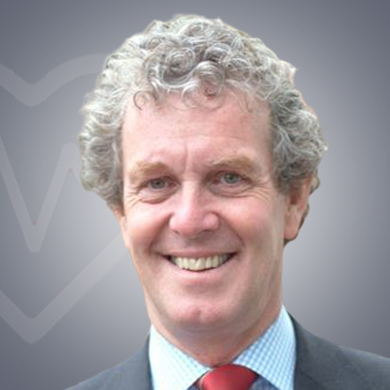
of experience
Speaks: English
Medical oncologist provides diagnosis and treatment of most types of cancers and is involved in the development of preventive measures programs. Treatment plans for cancer patients are designed considering the interdisciplinary approach. They work in close cooperation with the departments of surgery, nuclear medicine, radiology, pathology, therapy, and radiation oncology. The conditions that Dr. Ian Smith treats are listed below:
Different types of cancer produce different signs and symptoms. It is very crucial to detect cancer in the early stages. Early detection of cancer helps in the effective treatment of cancer. Some of the symptoms look like those produced in other health conditions. It is highly suggested to consult an oncologist who will evaluate the symptoms and will suggest tests to detect cancer. With the advancement of medical technology, a number of diagnostic techniques are available which can effectively diagnose cancer. Some of the symptoms that cancer may cause are:
Dr Ian Smith works from 11 am to 5 pm (Monday to Saturday). The doctor is not available on Sunday. Call the doctor or his attendant to confirm his/her availability because the doctor may not be available due to some personal reasons or any emergencies.
Dr Ian Smith performs a number of popular procedures listed below:
Chemotherapy is a common procedure for the treatment of a certain type of cancer. It involves the use of chemicals to kill growing cancer cells in the body. Chemotherapy medications can be used alone or combined with other drugs to treat a variety of cancers. Hormone therapy is a procedure that uses medicines to stop or lower the amount of hormones used by cancer cells to grow. Hormone therapy is used for the treatment of breast cancer, prostate cancer, ovarian cancer, and womb cancer.

Share Your Experience about Dr. Ian Smith

Medical Oncologist is a specialist who treats cancer through chemotherapy and other medications such as targeted therapy, and immunotherapy. He is considered the primary health care person for cancer patients. They closely work with the other medical professionals for the best results. A medical oncologist also continues with follow-ups and complete checkups of cancer patients after treatment. If cancer cannot be treated, medical oncologists use hospice or palliative care for the patients. Medical oncologists are primarily responsible for managing cancer.
A medical oncologist would suggest the below tests to be performed to diagnose cancer:
A biopsy is an effective test to confirm cancer. It involves removal of tissues or a sample of cells from the body so that it could be studied in a laboratory. If you are experiencing some symptoms or if a doctor has found an area of concern, you might undergo a biopsy.
You will see a medical oncologist after you have been diagnosed with cancer. It is one of the first steps of your cancer treatment. You need to see a medical oncologist if you experience the symptoms listed below: